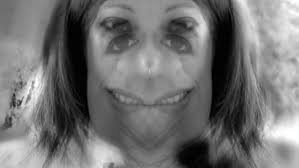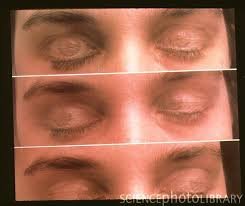Conditions which affect the mind, where there has been some loss of contact with reality. Psychosis is most likely to occur in young adults and is quite common. Most make a full recovery from the experience. Psychosis can happen to anyone and like other illnesses, it can be treated.
Symptoms:
Psychosis can lead to changes in mood, thinking and to abnormal ideas. In order to try to understand the experience of psychosis, it is useful to group together some of the more characteristic symptoms.
Confused thinking
False beliefs ( believing things that are not possible)
Hallucinations ( seeing or hearing things that are not really there)
Changed feelings ( mood swings)
Changed behaviours (suspicious)
Psychotic Episode occurs in three Phases:
Phase 1- Early signs are vague and hardly noticeable
Phase 2- Clear psychotic symptoms are experienced
Phase 3- Recovery. Psychosis is treatable and most people recover. The pattern of recovery varies from person to person.
Drug-induced Psychosis:
Use of or withdrawal from alcohol or drugs can be associated with the appearance of psychotic symptoms. Sometimes those symptoms rapidly resolve as the effects of the substances wear off. In other cases, the illness may last longer but begin with drug-induced psychosis.
Organic Psychosis:
Sometimes psychotic symptoms may appear as part of a head injury or physical illness which disrupts brain functioning, such as encephalitis AIDS, or a tumour. There are usually other symptoms present, such as memory problems or confusion.
Brief Reactive Psychosis:
Psychotic symptoms arise suddenly in response to a major stress in the person's life, such as a death in the family or change of living circumstance. Symptoms can be severe, but the person makes a quick recovery in only a few days.
Recovering from Psychosis:
Sometimes people with psychosis symptoms are reluctant to ask for treatment. Perhaps they believe there is nothing wrong or hope the symptoms will go away without help. They may be concerned about the actual treatment or worried about what people may think. An increased understanding of psychosis has led to new drugs and therapies being developed. People with psychosis are likely to be treated at home, usually visiting a local mental health out-patient clinic on a regular basis.
What will treatment involve:
Assessment: Interviews with a mental health specialist such as a psychiatrist. Blood test and Xrays will probably be organized to exclude a physical cause of the symptoms.
Medication: It can be a clinical treatment for psychosis. Along with other forms of treatment, it plays a fundamental role in recovery from a psychotic episode and in the prevention of further episodes. Medication will be monitored and if side effects develop the type of medication or amount taken may be changed. You can obtain written information about the medications that you are taking by asking your psychiatrist, pharmacy and mental health nurses.
When should the hospital be considered?
Most people with psychosis can be treated at home. Sometimes however, there are benefits in spending a period of time in hospital before continuing with home treatment. Hospitalization allows symptoms to be observed fully, assists investigations and help with the start of treatment.
Compliments of my #nursing notes.
Photos compliments of #online images


Psychosis ... Is what is commonly thought of as insanity. Hopefully it is brief ... But this is not always the case. the mind is fragile.
I am in agreement with your statement about the mind being fragile, in most cases the illness is treatable and this also depends on the individual, like I said it varies from person to person. Some might not be willing to undergo treatment at all, thinking that it will go away on it's own, there in lies a false sense of security!